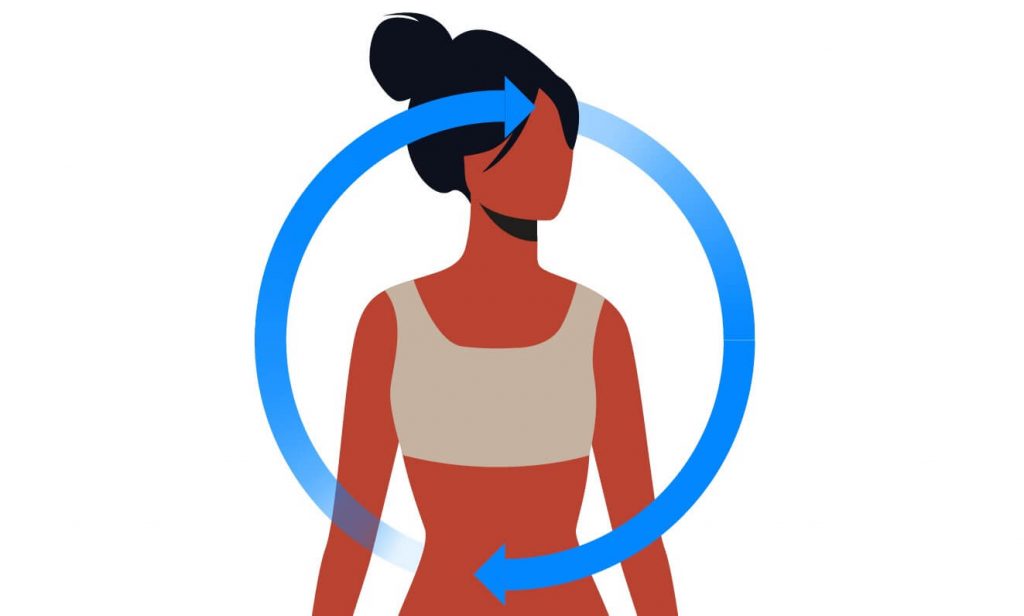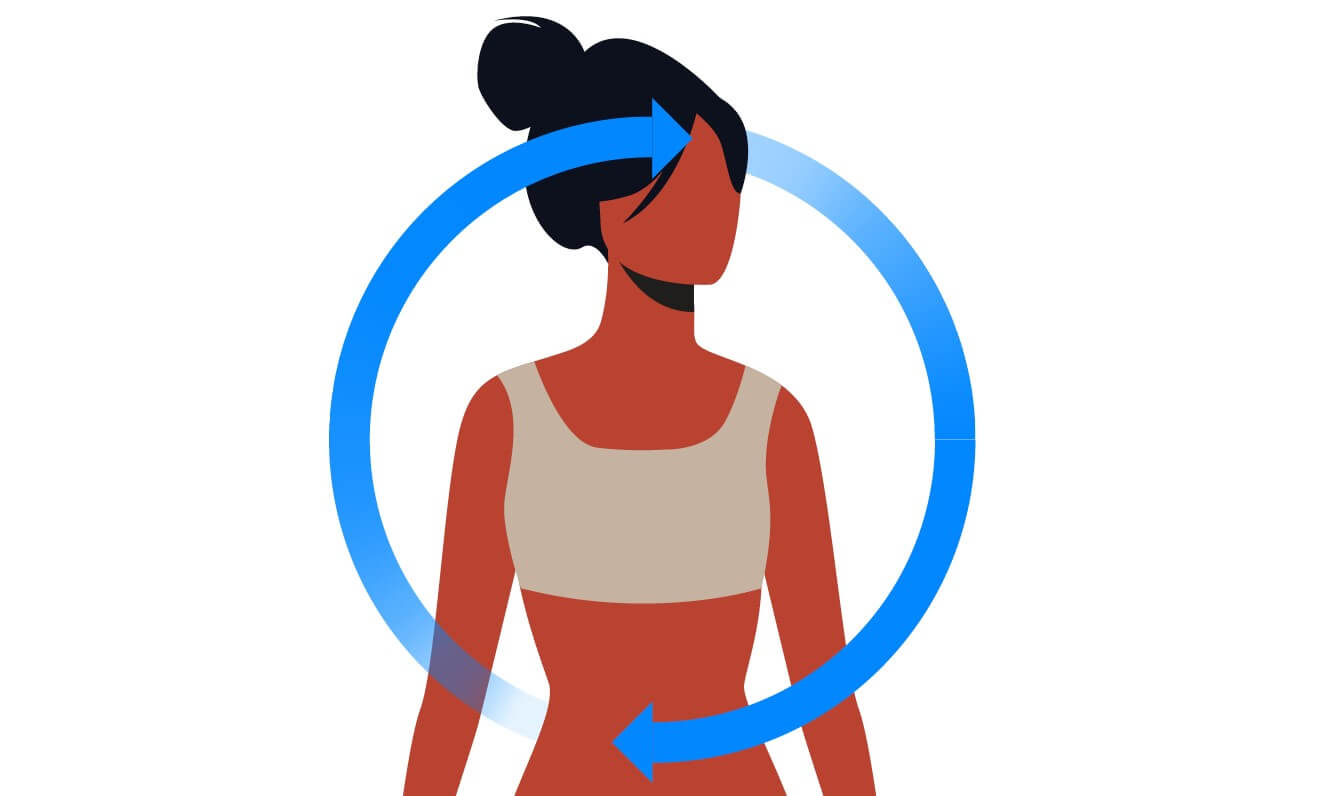Stress and Gut Health: 5 Tips for a Happier Gut and Calmer Life
The human gut is an amazing entity. It’s home to a vast network of nerves, neural transmitters and thousands of different microflora that keep our bodies up and running. It’s so complex that scientists sometimes call it “the second brain”. It’s no surprise that stress and gut health are closely connected. Your gut can influence your moods just as much as your brain, too. Scientists are still learning how this incredibly complex system works, and there are still many things that we don’t know. We do know, however, that because the brain and gut interplay with each other, changes in one can affect the other.
High levels of stress in your body can inhibit digestion, lower your immune system and even lead to the breakdown of your intestinal lining. This can cause short term problems like diarrhea, heartburn, gas and stomach pains, or lead to more severe problems later on, like leaky gut syndrome or IBS. That’s why it’s essential to keep your stress levels under control if you want to improve your gut health.
Here’s what you need to know about the brain-gut connection, along with our best tips for keeping your stress levels low and your gut bacteria content.

The Brain-Gut Connection: How stress affects the digestive system
We’ve barely scratched the surface in understanding the complex relationship of how the brain and the gut communicate to affect our moods. But here’s what we do know. Our digestive tract is home to thousands of different species of microbes all working together. This complex system works to break down the nutrients in our food, keep our immune system strong and produce hormones that keep our bodies operational. And what you put into your gut can directly affect how you feel.
Serotonin, the happiness hormone, is actually produced in the gut. It’s created by breaking down the essential amino acid tryptophan and is sent to your brain via the vagus nerve. Tryptophan is found in many whole foods like fruits, vegetables, meats, dairy and seeds. It’s one of many ways that a healthy diet can help you stay happy.
But there’s another hormone your body produces that doesn’t always make you feel good: cortisol. When your body experiences stress or discomfort, your brain triggers the adrenal gland to release cortisol, the stress hormone. Excess levels of cortisol have been linked to everything from weight gain and gastrointestinal problems to a suppressed immune system and cardiovascular diseases.
We can’t always control the things that stress us out, but we can take control of how we react to those stresses. Adopting healthy habits can help lower your cortisol levels naturally, helping you heal both your brain and your gut.
5 Tips to Strengthen your Brain-Gut Connection
1. Eat whole foods
The number one thing you can do to keep your gut thriving is to eat a diet filled with whole foods. The highly-processed foods that make up the majority of our western diet lack the necessary nutrients and fiber our gut microbes need to stay healthy.
This can lead to them dying off in mass quantities, which weakens your immune system and leaves you susceptible to disease. Whole, unrefined foods like fruits and vegetables are the perfect fuel for your gut’s vast network of microflora. Their rich quantities of fiber promote proper digestion to keep your gut working properly, and a happy gut usually leads to a happy mind. It’s also important to understand the difference between good and bad sugars.
2. Stop stress-eating
When we’re feeling stressed, the first thing most of us do is reach for our favorite candy or snack food to fill the void. It’s called stress-eating, and it’s a common coping mechanism for the chaos in our modern world. But although that burst of satisfaction feels good in the moment, eating sweets can exacerbate your stress-induced stomach issues in the long-term.
Foods high in refined sugar and unhealthy fats increase inflammation in the body. This sends your stress levels even higher and only worsens the problem you’re trying to cure. While there is something to be said for finding comfort in your favorite foods, stress-eating usually means you aren’t taking the time to properly enjoy your food. There’s a big difference between eating one cookie as a treat versus five because you’re eating your feelings.
The next time you find yourself craving a brownie after a stressful conversation, remember that eating sugar will only stress your belly even further. Save your indulgences for times when you can actually enjoy them instead.
3. Meditate
The brain and the gut are so intricately connected that calming the brain also can calm the gut. Practicing mindfulness meditation can lower levels of cortisol in the body. These lowered stress levels can lead to improved digestion, which keeps your gut in good shape.
Taking the time to clear your mind of life’s worries can also help you be more calm and understanding in your daily life. Mindfulness meditation practices have even been proven to help with depression and anxiety, which can exacerbate other health conditions. Try meditating for just a few minutes a day and see if you feel any improvements to your nervous stomach. Here is more on meditation to get you started.

4. Exercise
Working up a sweat is also an excellent way to deal with stress. In addition to obvious benefits like weight-loss and stronger muscles, exercise triggers the release of serotonin, which can lower stress levels. Even a 20-minute stroll outside can do the trick to get the serotonin flowing. Just be careful to pace yourself, and be sure not to overdo it.
5. Get more sleep
Sleep is the essential time period when our bodies take time to recharge every day. Getting a good night’s rest can improve your cognitive performance and help fight off Alzheimer’s disease. Getting adequate rest is also important for lowering stress levels, and you can improve the quality of your sleep by improving your diet.
Eating foods high in tryptophan helps your gut produce serotonin and also leads to the production of melatonin, the sleep hormone. Higher levels of melatonin can dramatically improve the quality of your rest, which can work to lower stress in your body. If you want to get a better night’s sleep, try eating more fruits and vegetables during the day.
The Bottom Line
Stress and gut health are closely linked. Eating healthy whole foods is one of the best things you can do to reduce your stress levels and stomach issues. Treats may be enjoyed in moderation, but not to fill an emotional void or coping mechanism for stress.
Originally printed on Aviv Clinics blog. Reprinted with permission.
Kathryn Parker is the Registered Dietitian for Aviv Clinics, located in Central Florida. Her work as a dietitian has helped many over her extensive career including college and Olympic athletes, city employees, one of the largest worldwide entertainment company’s staff members and diabetics in an academic health center. In her effort to make America healthier, Kathryn has instituted wellness programs for large organizations as well as counseling clients one-on-one. Most notably, Kathryn developed the LifeQuest fitness program for the city of Gainesville, wining the city a platinum Well Workplace award from the Wellness Council of America, an honor shared by only nine employers nationwide.
References
Aronson, D. (2009). Cortisol – Its Role in Stress, Inflammation, and Indications for Diet Therapy. Today’s Dietitian. https://www.todaysdietitian.com/newarchives/111609p38.shtml.
Heijnen, S., Hommel, B., Kibele, A., & Colzato, L. S. (2016). Neuromodulation of Aerobic Exercise—A Review. Frontiers in Psychology, 6. https://doi.org/10.3389/fpsyg.2015.01890
Miller. (2021, June 14). Meditation and Brain Health: Benefits Backed by Science. Aviv Clinics USA. https://aviv-clinics.com/blog/brain-health/meditation-and-brain-health-benefits-backed-by-science/.
Parker, K. (2021, June 13). How Does Sugar Affect the Brain? Aviv Clinics USA. https://aviv-clinics.com/blog/brain-health/how-does-sugar-affect-the-brain/.
Parker, K. (2021, May 23). The Gut-Brain Connection. Aviv Clinics USA. https://aviv-clinics.com/blog/nutrition/the-gut-brain-connection/.
Rooks, M. G., & Garrett, W. S. (2016). Gut microbiota, metabolites and host immunity. Nature Reviews Immunology, 16(6), 341–352. https://doi.org/10.1038/nri.2016.42
Turakitwanakan, W., Mekseepralard, C., & Busarakumtragul, P. (2013). Effects of mindfulness meditation on serum cortisol of medical students. Journal of the Medical Association of Thailand = Chotmaihet thangphaet, 96 Suppl 1, S90–S95.

